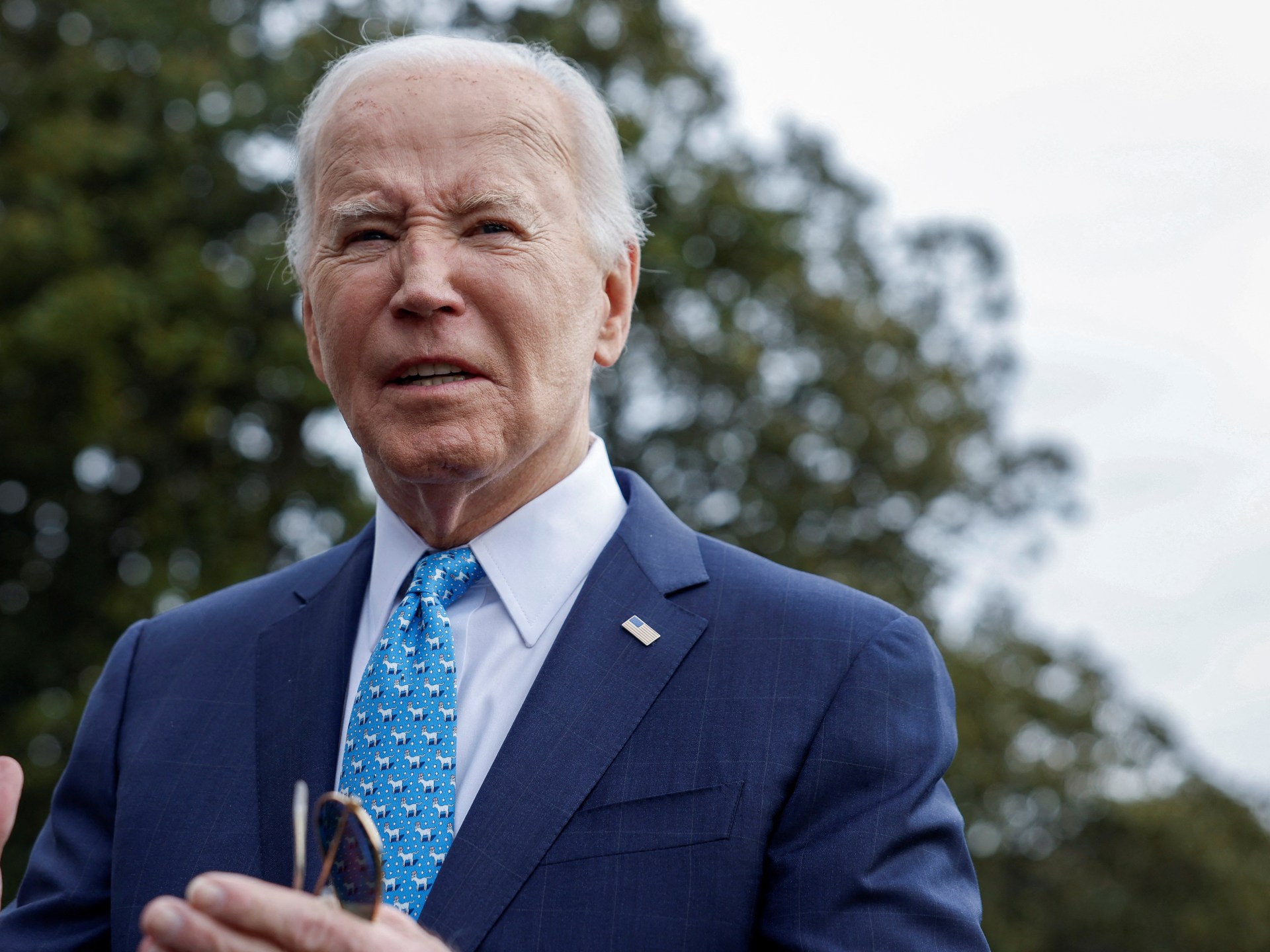
The US president says he doesn’t want to start a regional war but will respond to the first deadly attack on US troops.
President Joe Biden says he has decided on an answer to one Deadly drone attack on US forces in Jordan, but stressed that he was not seeking a major war in the Middle East.
“Yes,” Biden told reporters at the White House on Tuesday when asked whether he had decided on his response to the attack that killed three U.S. soldiers at a military outpost near the Jordanian-Syrian border on Sunday .
The US president did not provide any details about his decision, which came after consultations with top advisers in the White House.
John Kirby, the White House national security spokesman, told reporters aboard Air Force One as Biden flew to Florida that the U.S. could respond more than once.
“You have every right to expect that we will respond appropriately and it is very possible that you will see a phased approach here, not just a single measure but essentially multiple measures,” he said.
The president previously accused Iranian-backed groups of carrying out the first deadly attack on U.S. forces in the Middle East since Israel’s war on Gaza began in October.
While he gave no further details about the actions he would take, when asked about concerns that an attack on Iran could spark a larger conflict, he said: “I don’t think we’re going to have a larger war in the Middle East need.” That’s not what I’m looking for.”
Asked whether Iran was responsible for the attack on Jordan, Biden replied: “I hold them responsible in the sense that they provide the weapons to the people who did it.”
He added that “we will have that discussion” when asked if a direct link to Iran had been established.
Tehran said it had nothing to do with the attack and rejected US allegations that it was supporting armed groups behind the attack.
The 81-year-old US president is facing increasing pressure in the election year. Republicans are urging Democrats to punish Iran for the attack, with some even going so far as to call for direct attacks on Iran itself.
Biden’s administration believes an attack on Iranian territory could lead to an outbreak in the region, with attacks on Iranian-backed militias and possibly Iranian Revolutionary Guard facilities in other countries more likely, US media reported.
The White House promised a “very consistent” response on Monday.
Tensions in the region sharply escalated after the attack in Jordan and were already unstable afterwards October 7 Hamas attack about Israel and Israel’s devastating response in Gaza.
Fears of a regional conflagration have grown Houthi rebel attacks in Yemen about shipping in the Red Sea and almost daily tours Cross-border fire between Israel and the Lebanese armed group Hezbollah.
In recent weeks, Iranian-backed armed groups have stepped up attacks on U.S. military bases in Iraq and neighboring Syria in response to Israel’s military operation in Gaza.
The Iran-backed groups described their attacks as retaliation for Washington’s support for Israel’s war on Gaza and said they were aimed at driving U.S. forces from the region.
The U.S. has struck targets in Iraq, Syria and Yemen in recent months to respond to attacks on American forces in the region and to deter Iran-backed Houthi rebels from continuing to threaten commercial shipping in the Red Sea.
The Kremlin, a close ally of Tehran, called for de-escalation in the Middle East on Tuesday.
“From our perspective, the overall level of tension is very worrying, on the contrary, it is now time to take steps to de-escalate tensions,” Kremlin spokesman Dmitry Peskov told reporters in Moscow.
“This is the only thing that can help us prevent a further expansion of the conflict, especially the Middle East conflict, and somehow achieve conflict reduction and de-escalation.”
China also warned of a “cycle of retaliation” in the Middle East.
Beijing has close ties with both Russia and Iran, with all three seeking to challenge Washington’s perceived global hegemony.






Recent Comments